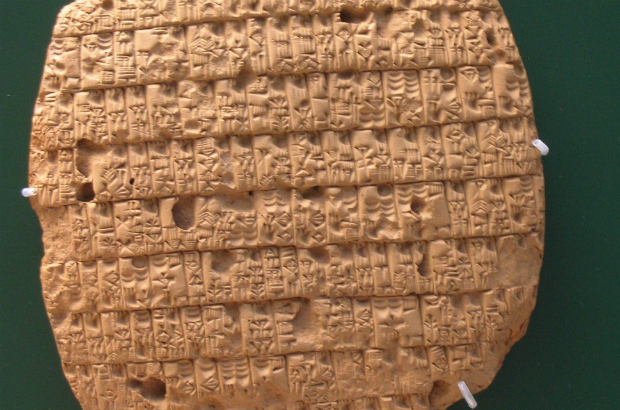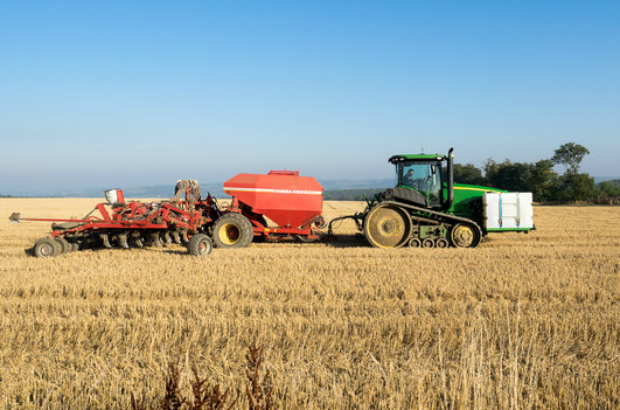When people think about data, agriculture may not be the first thing that crosses their minds. Yet agricultural data are some of the oldest: there are cuneiform records of grain yields and livestock from Mesopotamia; the Domesday book lists farmsteads; and farmer’s almanacs from the middle ages record meteorological conditions and their effect on crops.

Just as knowledge-sharing in almanacs brought benefits centuries ago, open data has much to offer farmers and communities in the 21st century. I was recently one of 700 delegates from around the world at the United Nations sponsored Global Open Data in Agriculture and Nutrition (GODAN) meeting in New York. This meeting focussed on how open data could help to solve some of the challenges for food production. As the population increases and food production becomes more costly due to climate change and uncertainties about energy and fertiliser production, open data has the capacity to be an important part of the solution to global problems of food poverty and poor nutrition. It can make a real difference in developing economies, where people who might not have access to some other basic infrastructures can now more easily become genuine participants in economic activity.
In developed countries, the methods of engagement may differ but the effects are the same. This is fundamentally about allowing information to flow easily between those who have knowledge to those who need it. The activities of CABI, an organisation that holds data about plant pests and diseases, can assist farmers to understand what plant diseases they are coping with and how to adapt their farming methods to reduce the impact of disease. Better use of data can help farmers to find markets for their produce and get paid, while also finding sources of the best seeds suited to their soil conditions.
Evidence-based decision making
Open data is agnostic to whether the applications are in developing or developed economies. The Open Data Institute suggests that data is infrastructure for the digital economy, leading those who have access to data to decisions informed by evidence. In an environmental context, ensuring that individuals have access to information empowers them to make decisions informed by evidence. In an agricultural context, open data has the potential to allow information sharing and so enable a culture of continuous improvement.

In the UK we are trying to lead by example by making our own government data open by default. After a sustained effort, over 40% of all UK government open data now comes from Defra. So far this is over 12,000 datasets mostly about food and farming or relevant to the environmental outcomes affected by our agriculture.
As I emphasised in the two presentations I gave at the GODAN conference, open data is not enough on its own. We have to make sure there are tools to allow people to 'see' data much more easily. People need to be led through the data in ways that allow them to answer questions.
We also need good case studies. These are illustrations of the ways in which using data has helped farmers and those working in agriculture. They are necessary because often those people involved don't know what questions are important. This is a much bigger problem than many people realise. Unless practitioners are primed to ask questions of data they will never know what they are missing.
The risks of open data
Despite all the euphoria around the power of data, I was surprised by how little caution there was in the rhetoric emerging from the conference. In my talks I challenged this. In the past, early gung-ho messages have sensitised people to potential (but largely spurious) disadvantages of potentially world-changing innovations. This is especially true of synthetic biology, which should be revolutionising farming and food production across the globe, but is being held up by concerns that were partly caused by that initial gung-ho attitude. I don’t want open data to suffer a similar fate.
Central to the risks associated with data is personal information. Everybody leaves behind their digital fingerprint as they engage in digital economies. For those who wish to, there are ways of using these signals to find out more about us than perhaps some people might wish. I am a great supporter of better use of data, but we need to make sure that people know what data there is about them, how it is being used, and by whom. At Defra, data practitioners have made a huge amount of data open, but it has also been their responsibility to remove any personal data from datasets. Sometimes this is easy, but sometimes it is extremely difficult. We need to be open about the challenges of opening up data.
Keep up to date with the GSE profession’s work by signing up for email alerts.
Image Licence: Creative Commons Attribution-ShareAlike Trevor Littlewood







